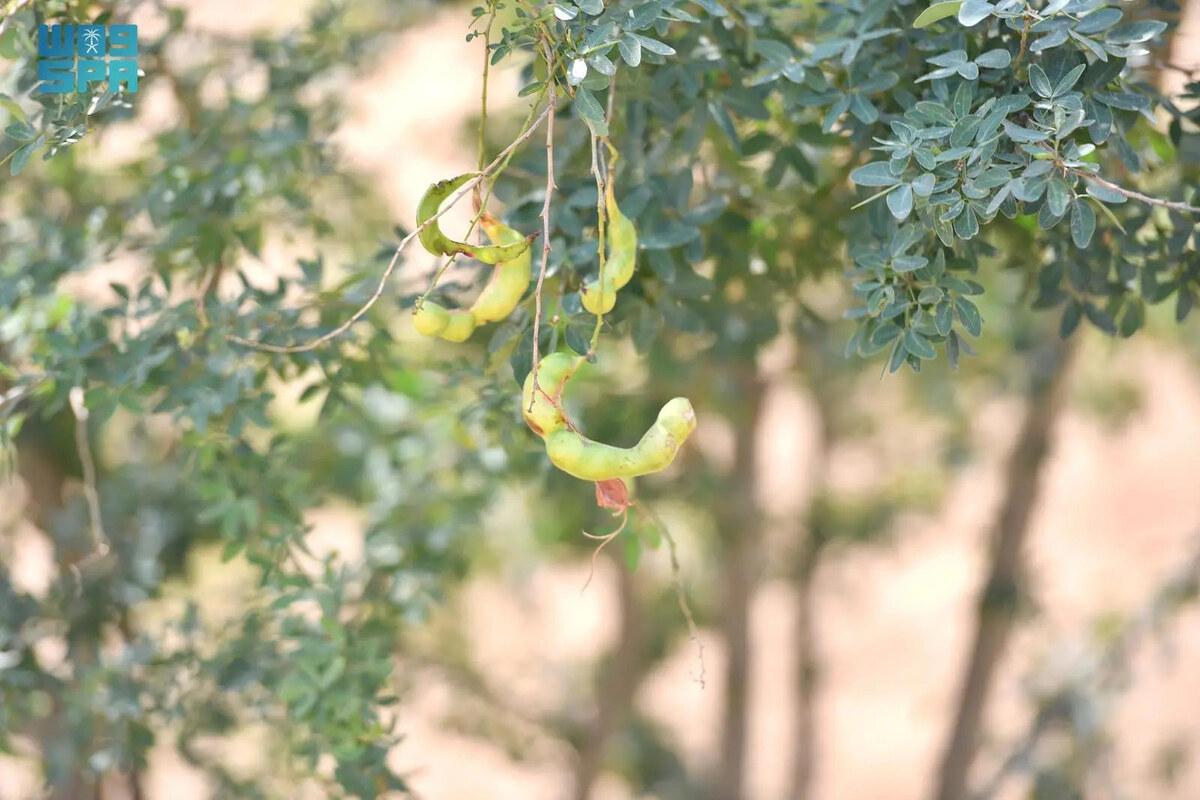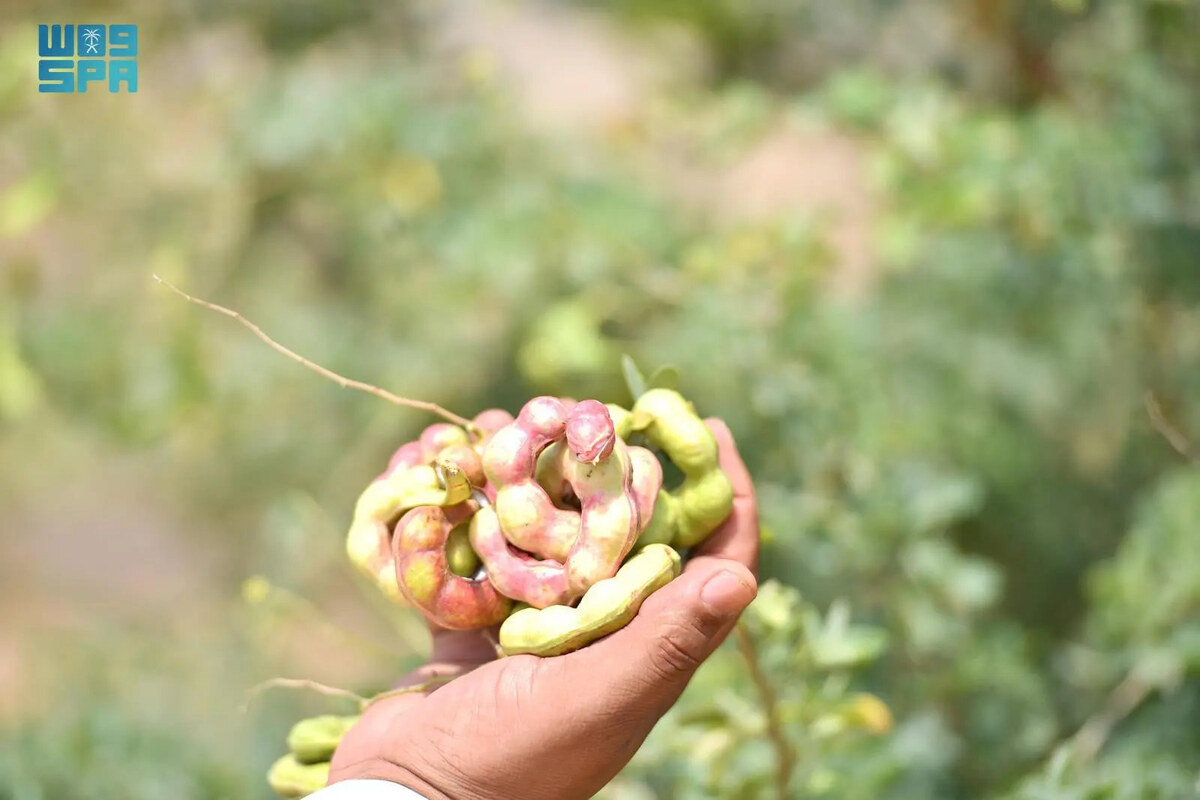RIYADH: Just a few short years ago, visitors to Saudi Arabia could never have imagined feasting on a plate of vegan tuna nigiri or a meatless shawarma. Thanks to new investments in agritech, these plant-based alternatives are now firmly on the menu.
With the movement towards meatless eating gaining momentum in response to mounting environmental and health concerns, the Kingdom’s public and private sectors are working together with a view to produce food more sustainably.
“Taking actions towards plant-based products is essential for promoting environmental sustainability,” Faisal Al-Sughayer, co-founder and general manager of Saudi plant-based brand Ayla’s Choice, told Arab News.
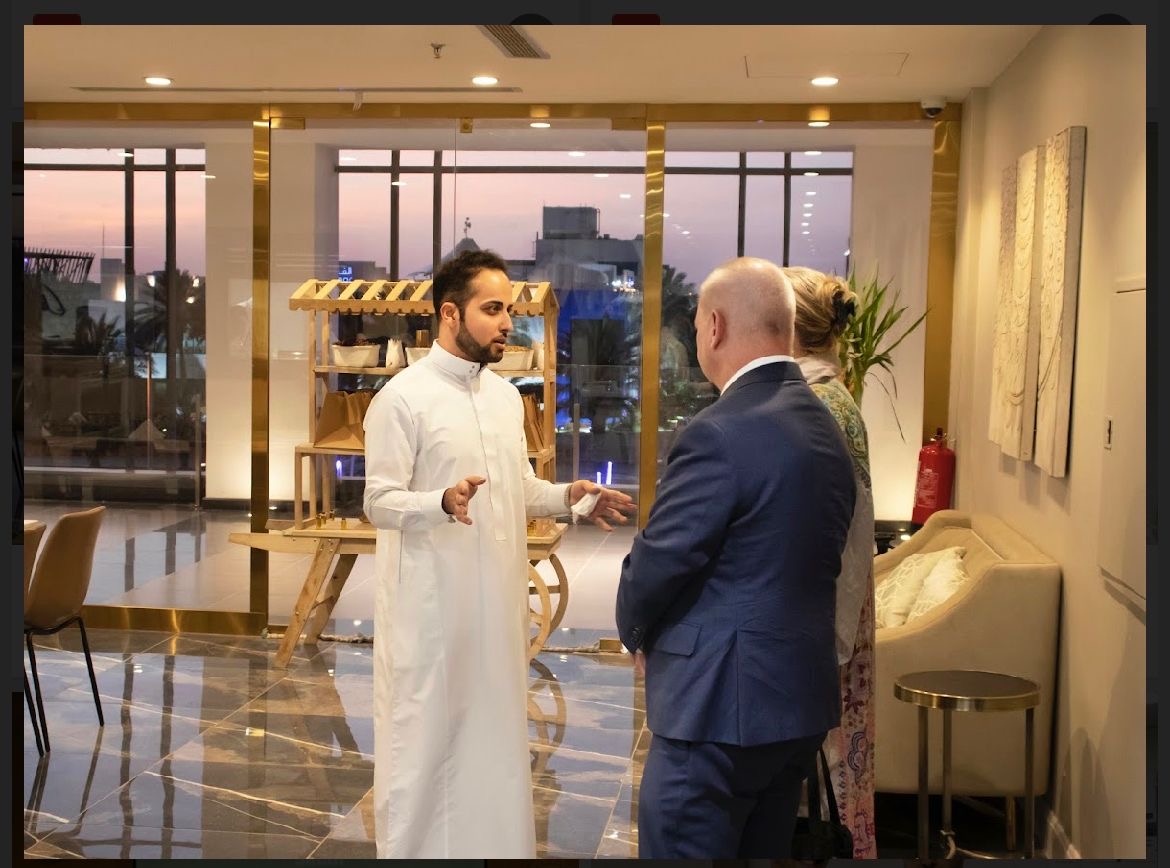
Faisal Alsughayer, co-founder and general manager of Ayla’s Choice, Faisal Alsughayer, says the company’s goal is to provide consumers with healthy alternatives to animal products. (Supplied)
“Conserving resources, enhancing human health, ensuring food security, and even economic opportunities as well — and also building climate resilience. This is what we’re trying to do with farming.
“By making conscious choices to incorporate more plant-based options into our diets and lifestyles, we can contribute to a positive change and create a healthier, more sustainable society.”
Since the launch of the Saudi Green Initiative in March 2021, the Kingdom has witnessed significant changes owing to its commitment to enhance food security, the promotion of sustainable agriculture, and adaptation to evolving food trends.
Mindful of vulnerabilities in the global supply chain, the Kingdom’s investment in food industry innovation and diversification is also designed to achieve a degree of self-sufficiency in meeting the dietary needs of the population.
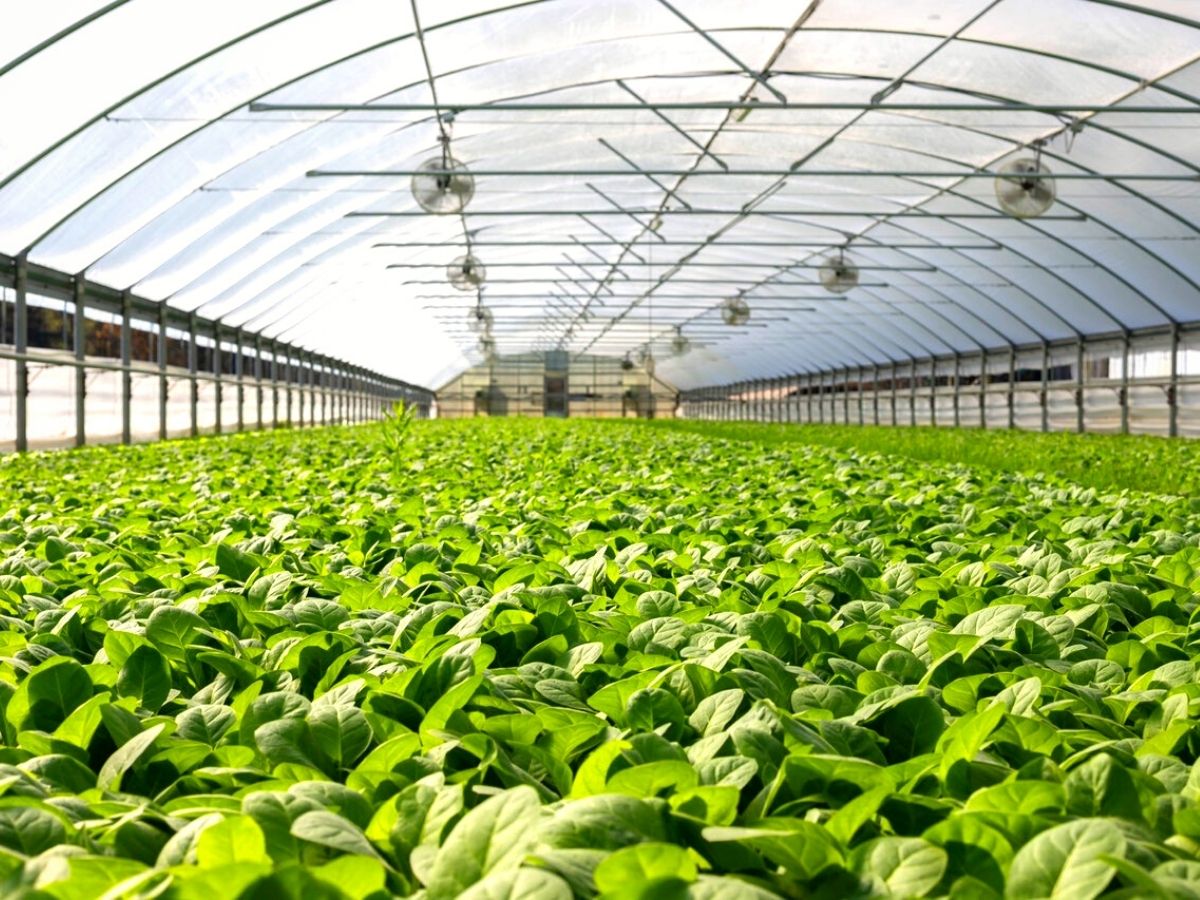
Last year, one of Saudi’s most anticipated giga-projects, NEOM, announced its collaboration with a Dutch greenhouse company to form a horticulture oasis just outside the urban city. (Supplied)
This is being driven in part by government initiatives, new technological advances, and shifts in consumer preferences.
About a year ago, the Saudi Ministry of Environment, Water and Agriculture signed deals with the Cooperative Societies Council, Saudi Greenhouses Management and Agricultural Marketing Co., and Ayla’s Choice to develop plant-based foods.
With these agreements, the ministry aims to promote a culture of healthy eating, provide locally made, high-quality vegan and vegetarian alternatives, and to utilize advanced technologies for producing meat and dairy substitutes.
These deals will also help modernize farming and marketing systems, promote food security, enhance environmental sustainability, and contribute to the overall development of the Kingdom’s agricultural sector.
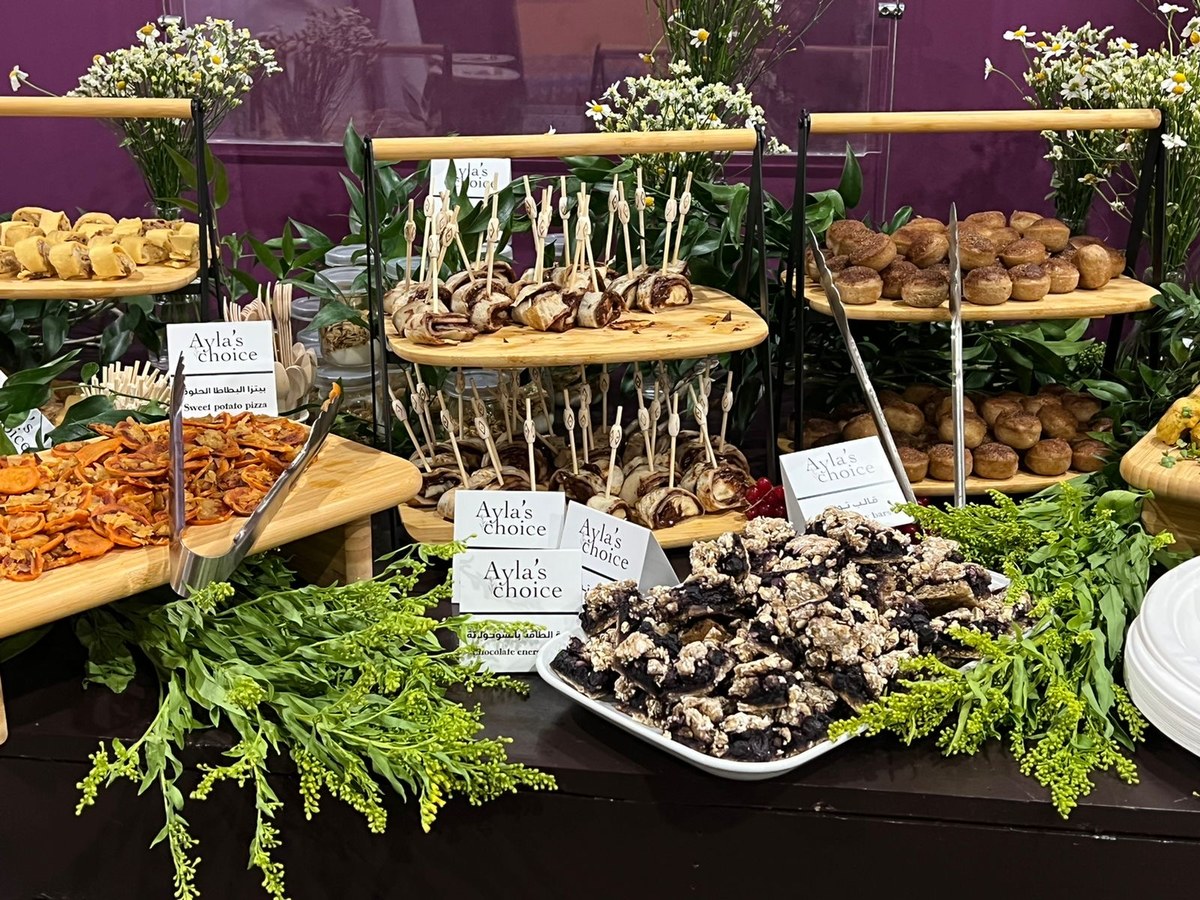
Ayla’s Choice is passionate about creating sustainable local plant-based products. (Supplied)
According to Al-Sughayer, Ayla’s Choice was the first company in Saudi Arabia to obtain a license from MEWA to produce plant-based products, paving the way for more licenses and investment opportunities.
The company’s goal is not to promote a completely meatless and dairy-free diet, but rather to provide consumers with healthy alternatives to animal products.
At one of its recent workshops in collaboration with MEWA, the company showcased innovative products, including truffle and olive caviar, carrot-based smoked salmon tartlet, tomato tuna nigiri, and eggplant unagi nigiri.
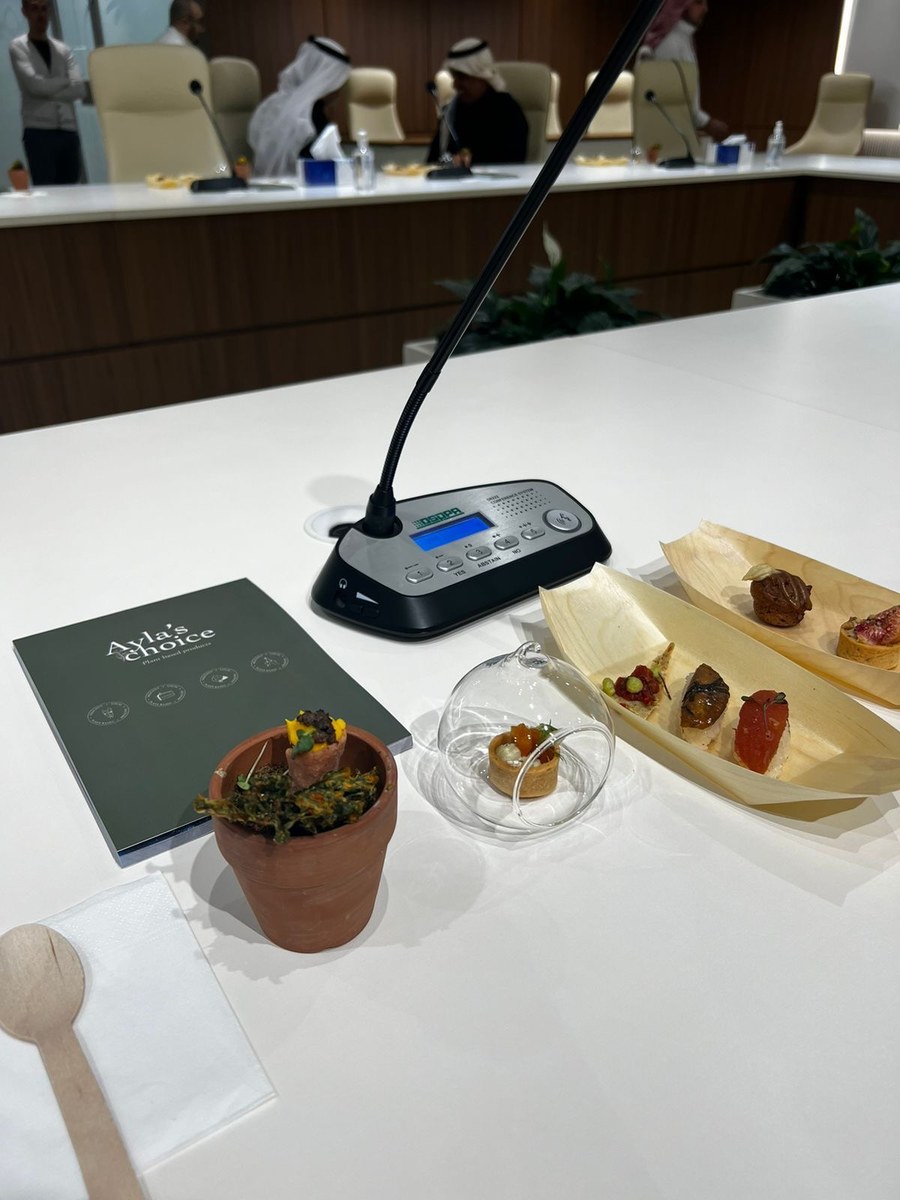
At one of their recent workshops in collaboration with the Ministry of Environment, Water and Agriculture, Ayla’s Choice showcased innovative bites including truffle and olive caviar, carrot-based smoked salmon tartlet, tomato tuna nigiri, and eggplant unagi nigiri. (Supplied)
“We’re eager to explore opportunities for collaboration for sustainability planning initiatives, including setting targets for reducing greenhouse gas emissions, by conserving water resources, preserving biodiversity, and participating in government led working groups or task forces focused on sustainable food systems,” said Al-Sughayer.
In doing so, the firm aims “to provide expertise and input from our sites from the plant-based sector, and from the agricultural sector to enhance food security in Saudi,” he added.
As of now, collaborations are in the works with MEWA, the Ministry of Economy and Planning, and individual companies to embark on joint ventures that will ensure the availability of the highest-quality meat- and dairy-free foods.
DID YOUKNOW?
• At the tail end of 2023, Vertical Farms Co. broke ground on Saudi Arabia’s largest indoor vertical farming project to date. It is set to begin operations in the second half of 2024.
• Companies like iFarm are pushing towards simplifying the process of mass sustainable commercial vegetable growing applications locally.
• With 3.2 million square meters, a large-scale farm in Asir’s Wadi bin Hashba holds the world record for the world’s largest sustainable farm.
Saudi Greenhouses Management and Agri Marketing Co. — also known as Al-Rasheed Greenhouses — is one of the largest farming and horticulture companies in the Gulf Cooperation Council area, with more than 40 years’ experience in the sector.
The firm operates in nine locations, managing more than 90 hectares of greenhouses and an additional 27 hectares of new expansions in high-tech greenhouses throughout the Kingdom. It is the biggest supplier of fresh produce to Saudi Arabia’s main retailers
“The company has full control on the whole supply chain of the fresh produce, starting from designing the right greenhouse specification for the right region to grow in the Kingdom, to delivering the fresh produce on the shelves for consumers,” Abdullah Al-Rasheed, the firm’s senior project manager, told Arab News

The sustainable farm in the Asir region, recently recognized by Guinness World Records as the largest in the world, uses treated water to irrigate crops planted across a 3.2 million square meter area. (Supplied)
“So logistic crop consultations, production management, is all handled under our company.”
Al-Rasheed Greenhouses recently signed a deal to cultivate and supply plant-based ingredients to Ayla’s Choice for use in its products, such as lion’s mane mushrooms, which are a meat-free alternative to steaks.
Al-Sughayer hopes the partnership will encourage local farmers in Saudi Arabia to consider tailoring their choice of crops to meet the growing demand of the plant-based foods industry, generating a better return on their produce and reducing waste in the process.
“This can have significant benefits for both the farmers and food security in Saudi,” he said. “Our aim is to diversify food sources by working with local farmers to develop plant-based products from the overabundance of local produce.”
Opinion
This section contains relevant reference points, placed in (Opinion field)
Saudi Arabia’s food sector has made great strides in sustainability. Last year, one of the Kingdom’s most highly-anticipated gigaprojects, the NEOM smart city, announced a new collaboration with a Dutch greenhouse company to build a self-sustaining horticultural oasis.
Using revolutionary technologies, the partnership with Van Der Hoeven will allow the region’s desert landscape, scorched by high temperatures and parched by low rainfall, to flourish with locally grown produce.
SweGreen, a Stockholm-based agritech company and vertical farming venture, is another potential partner.
Using soilless farming technology and monitoring systems managed by artificial intelligence, the company has enabled local supermarkets to grow crops in the middle of the store with absolute control over the quality and growing process.
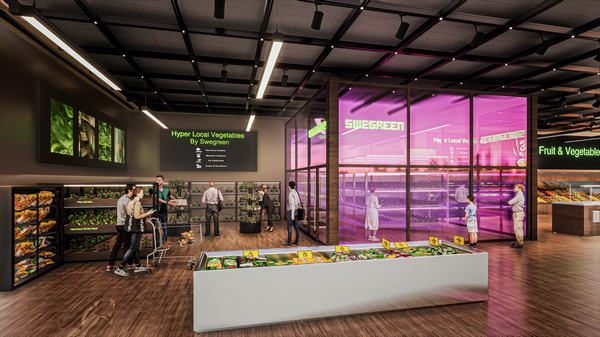
SweGreen has made headlines internationally with its world-leading in-store farm solutions and its AI-based steering and digital monitoring system. (Supplied)
“SweGreen has set four global industry records for efficiency and sustainability in agriculture,” Scott A. Ellis, the firm’s consultant liaison, told Arab News.
“The first one is a world record for lowest CO2 emissions. This is measured per kilogram of lettuce produced,” measured against the environmental impact of transporting food across the planet and its concurrent waste.
“Of course, this reduces the carbon footprint and also contributes to a more sustainable planet,” Ellis added.
The technology has also achieved the lowest rate of energy consumption and the highest production efficiency. More importantly for Saudi Arabia, however, is that the technology scored highest for water conservation, requiring just 1.3 liters per kilogram of greens.
ALSO READ:
• Saltwater-grown crops lift food-security hopes of arid Arab countries
• KAUST leading Saudi Arabia’s progress in aquaculture
“Production occurs 24 hours a day, all year round, regardless of the weather outside,” said Ellis.
“So, in summary, the greens with the highest nutritional content and maximum integrity and taste, have the lowest need for resources, including the big ones like water, energy and space, and leave the softest climate footprint.”
The revolutionary farm-to-fork system has been installed at 32 sites worldwide with plans for many more.
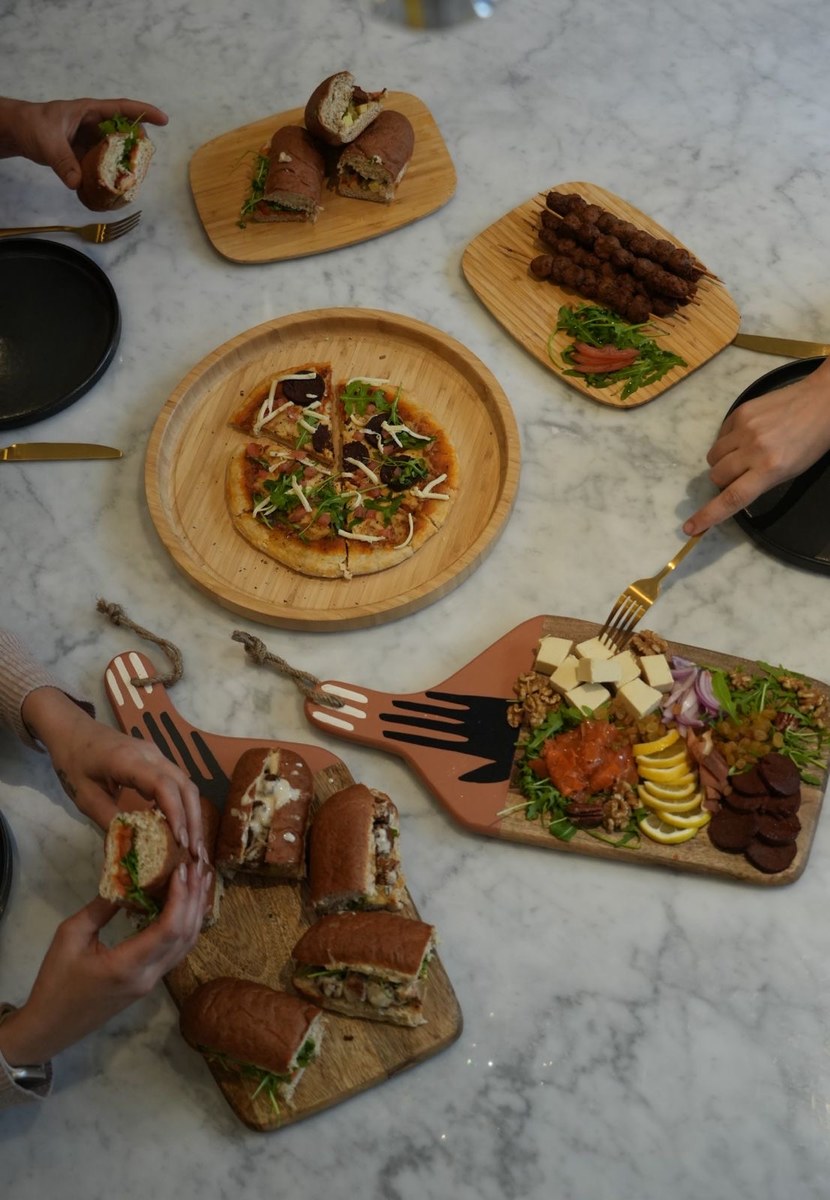
The plant-based company’s goal is not to promote a meatless and dairy-free diet, but rather provide healthier alternatives to the general population. (Supplied)
Ellis believes the technology will benefit local farmers by promoting local collaborations and will encourage consumers to purchase healthier foods, resulting in a healthier population overall.
“SweGreen is very supportive of working in a flexible way with Saudi Arabia to meet the needs and goals of Vision 2030,” he said.
For Al-Sughayer and others in the Saudi business community, partnerships with firms like SweGreen are a productive and mutually beneficial way to promote good health and environmental sustainability.
“By leveraging international expertise, we can easily address the challenge of produce when addressing sustainability goals and promoting food security in Saudi,” he said.





















